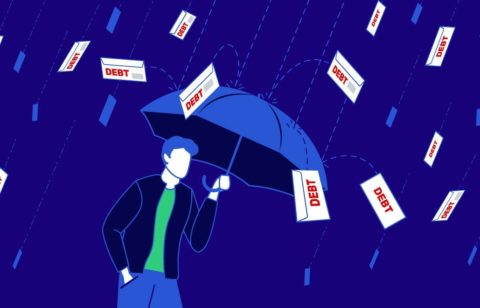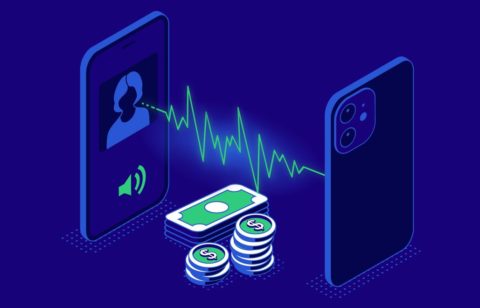Consumers in California who are battling with abusive debt collection practices should make themselves aware of the laws that protect them. There are both federal and state debt collection laws that you should know because it will keep you from being subjected to the unnecessary stress that comes with being harassed by rude callers.
The state of California understands the perils of being subjected to these abusive calls. This is why the local government created the California Fair Debt Collection Practices Act. This is to address the growing concern about these fly by night debt collection agencies.
Although not all of them are illegal, most of them practice illegal collection behavior. This is driven in part by the high charged off credit card debt in the state. According to a survey done by Credit, California is one of the states that have ranked in the top 10 for the past 3 years. All five states, Nevada, Delaware, Florida, Arizona and California is always a part of the top 10 states with the highest charged off credit card debt in the country. The data on the study was for the second quarter of 2013 and according to the data, California ranks 5th when it comes to consumers having the highest charged off rate. Some states were noted to have improvements when it came to charge offs but California is not one of them.
A charged off credit card debt is a type of debt wherein creditors have declared that they can no longer collect what is due. This usually happens 6 months after the consumer had defaulted on the loan. This is usually the time when the debt is passed on to a debt collection agency.
Additional rules about debt collection in California
While the collection of debt is certainly not illegal, it is the way that the agencies collect them that prompted California officials to strengthen the Fair Debt Collection Practices Act (FDCPA). They do not want the local consumers to be abused by a debt collector and that is why they have added stricter guidelines for companies that profit from purchasing old and unpaid debts.
This is known as the California Fair Debt Collection Practices Act (CFDCPA) and it was implemented at the beginning of this year, January 1, 2014. This act is applicable to all debts that are purchased past the enactment date.
It has to be clear that this act, just like the FDCPA, does not mean the collection companies cannot sue you for any unpaid debt. They still can and they are allowed to do so. However, the act does impose stricter guidelines and standards as to how that collection is to be done. In the end, the manner by which the debt is collected will be the primary concern in this law.
So what exactly does the law say about abusive debt collection practices? The FDCPA is still in effect but the CFDCPA provides a broader protection in the state of California. Here are some details from NOLO.com.
- Under this Act, the debt collectors include original creditors, collection agencies, business that profit from collecting debts, companies creating tools and forms used in debt collection, and lawyers or affiliated staff that collect debts. These collectors do not have to be licensed in the state.
- Debt collectors that are not covered by this Act are those that do not collect debt regularly. It does not cover collections for foreclosures – only consumer credit transactions.
- The Act prohibits any unlawful or threatening behavior when collecting. This includes threatening with crime, physical abuse, jail time, etc.
- The Act prohibits calling repeatedly and during ungodly hours, cannot use profanity, misrepresent their identity and should disclose their identity immediately after calling. Calling repeatedly means calling more than once in a day and calling other people other than the borrower.
- The Act requires the debt collector to protect the privacy of the consumer but they are allowed to report to the major credit bureaus.
- The debt collector is not allowed to get in touch with the consumer directly if they have chosen to be represented by a lawyer. All communication will be done through the lawyer.
- The Act requires debt collectors to provide a notice of lawsuit if they will file a case against the consumer. No collection on a judgement will be made after a default judgment is the consumer is not duly notified.
- The Act states that the consumer will only be sued in the county where the debt was incurred, then the borrower lived when the debt was incurred or where the borrower currently lives.
- The Act prohibits the use of falsified documents.
These debt collection practices are specific to consumers from California. They are still covered by the FDCPA.
How to protect yourself from abusive debt collectors in California
If you are a victim of these bad debt collection practices, you need to speak up. There are things that you can do about those abusive debt collectors. You do not have to think that you can take this sitting down.
Here are some of the things that you can do to protect yourself from these abusive collection practices.
- Know the laws protecting you as a consumer. This does not only refer to the FDCPA and the CFDCPA. There are other laws that you need to know about like the Credit Card Act and the Telemarketing Sales Rule. You need to understand these and more to be able to know if your rights are being violated.
- Check if your debt is past the statute of limitations. When a debt is past the statute of limitations, it means the collector or original creditor can no longer sue you for that debt. Each state has a different period and according to Bankrate, California has a statute of limitations of 4 years on credit cards. They can still try to collect from you if your debt is past 4 years since that date you defaulted. But if you make one payment, that will restart the statute of limitations. Make sure you understand how this works.
- Find out what you will do if your rights are violated. Most states follow the same options when filing a complaint against abusive debt collection practices. In California, you can complain with the California Attorney General, through the Federal Trade Commission or you can directly sue then in court.
Abusive debt collection practices should never be left unpunished. You need to understand that these instances will only get worse and you will not be the last to suffer these abuses. That means you have to air out your side and not be afraid to file a complaint against these agencies.
Of course, paying off your debt is still the right thing to do. Any debt, whether it is past the statute of limitations is still your responsibility. If you decide to act on it or not, that is up to you. While the California Fair Debt Collection Practices Act will keep you from being abused, that does not remove the debt record on your credit report. It will remain there for 7 years and if you want it removed faster, then you just have to pay it off.





